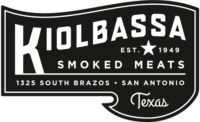Strength in Silver
Using silver ions in its antimicrobial coating compounds, AgION is developing groundbreaking food-safety advances.
Processors are constantly searching for ways to control surface contamination, food spoilage bacteria, and mold. Floors, ceilings, overhead pipes, passageway walls, process walls, and doors are common refuges for these contaminants. More often that not, traditional cleaners are not effective enough in sanitizing these areas. Constant cleaning can be insufficient, and common chemicals do not offer a sustained benefit between cleanings. Bacteria may develop adaptive resistance to cleaners, while microbes survive, recolonize, and grow, and biofilms are difficult to remove. In today’s processing environments, where bacteria can result in a HACCP violation and may lead to product contamination and a subsequent recall, innovative sanitation processes are vital.
Wakefield, MA-based AgION Technologies has pioneered the technology that utilizes silver to reduce the microbiological contamination and propagation in processing facilities. Silver (the “Ag” in AgION) is a naturally occurring, safe, and effective antimicrobial agent in its ionic form.
The AgION antimicrobial is a compound of silver ions bonded to an inert ceramic material that delivers a controlled release of the antimicrobial at a slow and steady rate. Ambient moisture in the air causes the silver’s low-level release that effectively maintains an antimicrobial surface. As humidity within the plant increases and the environment becomes ideal for bacterial growth, more silver releases. However, there is a maximum release rate, so even under the wettest of conditions, the controlled silver release continues, insuring long lasting protection.
Epoxy coatings with the AgION antimicrobial are designed to protect surfaces where mold and bacteria can grow. Because the silver-based antimicrobial is distributed throughout the thickness of the coating, the technology offers long-lasting protection against a broad spectrum of bacteria and mold, and resists biofilm development. Inorganic silver does not exhibit the negative side effects of many other antimicrobials that commonly use chlorinated organic compounds or toxic metals as active ingredients. The coatings from AgION provide another hurdle in the intervention strategy to interrupt the chain of contamination, because silver ions prevent respiration, inhibit reproduction, and disrupt the metabolism of bacteria.
The food-safety community has taken notice of AgION’s radical and effective approach to microorganism defense. Recently, AgION was awarded an inaugural NSF Food Safety Leadership Award for Breakthrough Technology, designed to recognize “groundbreaking achievements in food service safety that helps protect the public from foodborne illness.”
“This award exemplifies the commitment of AgION and their achievements will have a positive, lasting impact on consumers and on the foodservice industry as this award fosters individual creativity and innovation that culminates in the development of many groundbreaking advances,” said Kevan Lawlor, president and chief executive officer of NSF International.
AgION’s silver compounds can be found in its Clene Coat line of floor and wall coatings. The Clene Coat family includes epoxy coatings, sealants, grout, caulk, and trowelable flooring.
“This innovation in flooring and wall systems is just what the food-processing industry has been asking for,” said Ladd Greeno, AgION’sCEO. “Revolutionary changes like Clene Coat help to control surface contamination and damaging bacteria and mold; Clene Coat has been welcomed across the food processing industry. Bacteria can live on plant surfaces that visually appear to be clean, and the safe and long-lasting self-cleaning feature of Clene Coat products addresses a widely recognized problem.” np
AgION, phone (781) 224-7149 or visit www.agion-tech.com
AgION, phone (781) 224-7149 or visit www.agion-tech.com


Report Abusive Comment